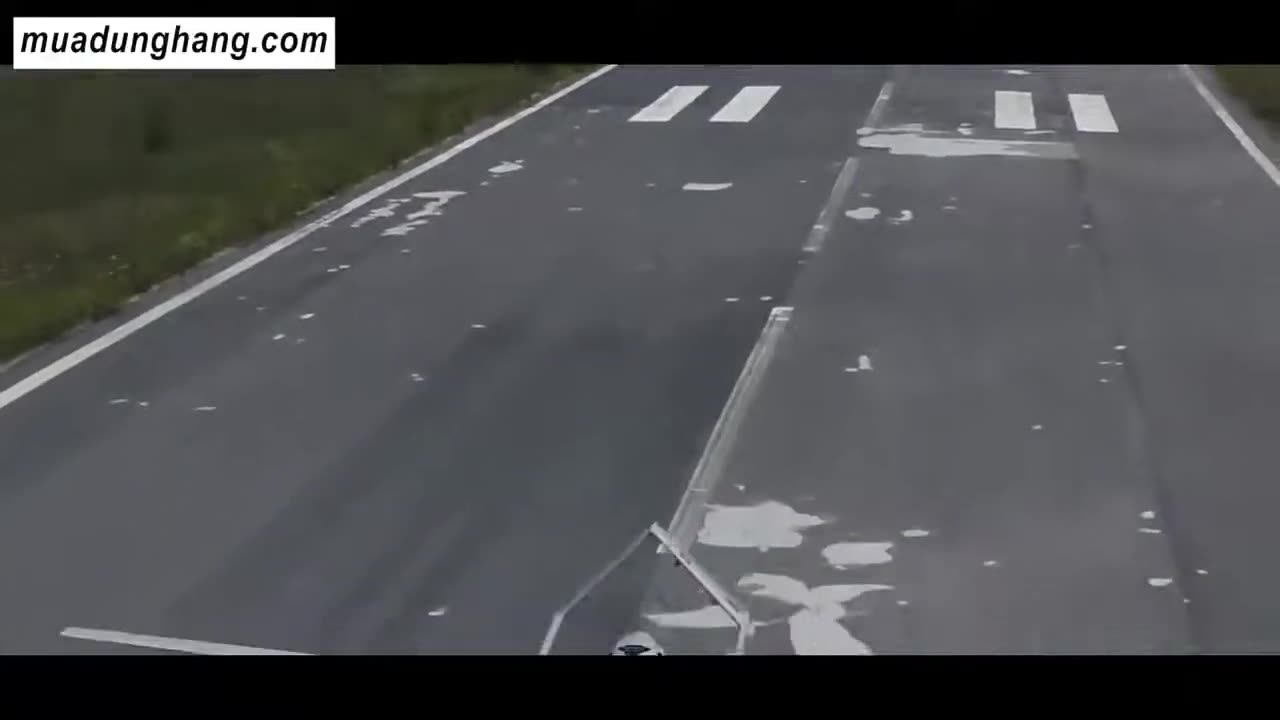Premium Only Content

The Bayraktar TB2 is a medium-altitude long-endurance (MALE) unmanned combat aerial vehicle (UCAV)
The Bayraktar TB2 is a medium-altitude long-endurance (MALE) unmanned combat aerial vehicle (UCAV) capable of remotely controlled or autonomous flight operations. It is manufactured by the Turkish company Baykar Makina Sanayi ve Ticaret A.Ş., primarily for the Turkish Armed Forces.[3] The aircraft are monitored and controlled by an aircrew in a ground control station, including weapons employment. The development of the UAV has been largely credited to Selçuk Bayraktar, a former MIT graduate student.
By November 2021, the TB2 drone had completed 400,000 flight-hours globally.[5][2] The largest operator of TB2 drones is the Turkish military, but an export model has been sold to the militaries of a number of other countries. Turkey has used the drone extensively in strikes on Kurdistan Workers' Party (PKK) and People's Protection Units (YPG) targets in Iraq and Syria. Bayraktar drones were later deployed by a number of other nations around the world in various wars, such as by Azerbaijan in the 2020 Nagorno-Karabakh war, by the Armed Forces of Ukraine during the 2022 Russian invasion of Ukraine, as well as by the Ethiopian National Defense Force during the Tigray War.
The development of the Bayraktar TB2 had been spurred by a U.S. ban on exports of armed unmanned aircraft to Turkey due to concerns they would be used against PKK groups inside and outside Turkey.
Baykar started developing a new combat tactical aerial vehicle system at the request of the Presidency of Defense Industries, after the experiences of its first tactical UAV, the Bayraktar Çaldıran or Bayraktar TB1, delivered to the Turkish army in 2011. The Bayraktar TB2 made its maiden flight in August 2014.[18] On 18 December 2015, a video was published of a test firing of a missile from the Bayraktar TB2, a result of a collaboration with Roketsan. Roketsan's MAM and TUBITAK-SAGE's BOZOK laser-guided bombs were tested for the first time.
The aircraft previously relied on imported and regulated components and technologies such as Rotax 912 engines (manufactured in Austria) and optoelectronics (FLIR sensors imported from Wescam in Canada or Hensoldt from Germany). Bombardier Recreational Products, owner of Rotax, suspended delivery of their engines to certain countries in October 2020, after becoming aware of their military use despite being certified for civil use only.
According to British newspaper The Guardian, the arming of the Bayraktar TB2 would not have been possible without the help of the UK Hornet micro-munitions bomb rack by EDO MBM Technology Ltd. The bomb rack was provided to Turkey in 2015, and a variant of it was integrated into the aircraft by EDO MBM and Roketsan. In response to The Guardian newspaper article, Baykar Chief Technical Officer Selçuk Bayraktar denied that the bomb rack came from the UK. "We are not buying it from you, we never did. It not only does not work under any circumstances but is also very expensive", Bayraktar said on Twitter. "We have designed and manufactured a more advanced and cost-effective one ourselves."
On 19 August 2020 the UK Department for International Trade (DIT) disclosed details of a six-year history of exports of the Hornet bomb rack to Turkey between 2014 and 2020, suggesting that supply of the critical technology to Turkey had continued well beyond the development stage of the Bayraktar TB2 and right up to the publication of the Guardian story in November 2019. 18 Standard Individual Export Licence (SIEL) applications were submitted by EDO MBM Technology between 2014 and 2020 for exports of goods 'related to Hornet Bomb Racks / Hornet Missile Launchers' for end-users in Turkey. Of these; 16 of the licences were granted.
In October 2020 the use of the Canadian Wescam MX-15D system in the drone was disclosed after Armenian officials claimed that remains of a MX-15D system had been recovered from a downed TB2 drone during the nation's conflict with Azerbaijan. That triggered the stopping of MX-15D exports to Turkey while an investigation by Global Affairs Canada evaluates the use of Canadian technology in the Nagorno-Karabakh conflict. Turkish industry responded to foreign sales boycotts by announcing provision of domestically manufactured alternatives including TEI PD170 engine (manufactured by TEI), fuel valves and the CATS FLIR system (manufactured by Aselsan). Integration tests with that system started on 6 November 2020. Turkish defense industry researcher Kadir Doğan tweeted that cancellation of sales of components to Baykar by foreign companies did not pose a major problem, and that as of January 2021, all of those components have been replaced by locally manufactured alternatives.
However, the majority of Baykar's customers, including Ukraine, Poland, Morocco, and Kuwait, declined to purchase the Aselsan CATS electro-optical turret and opted to order the Wescam MX-15D through an authorized distributor. Reasons include a weight increase from 45 to 61 kg (99 to 134 lb), general performance
-
 6:06:49
6:06:49
Sgt Wilky Plays
10 hours agoFirefight Friday
24.1K5 -
 5:03:49
5:03:49
Drew Hernandez
13 hours agoLA MAYOR PUSHED $49 MILL LAFD BUDGET CUT ONE WEEK BEFORE FIRES?
73.5K47 -
 2:52:04
2:52:04
Nobodies Gaming
8 hours ago $4.25 earnedNobodies Rumble Gaming TEST STREAM 2.0
48.2K3 -
 1:00:36
1:00:36
Talk Nerdy 2 Us
7 hours agoDigital Surveillance, TikTok Shutdowns & The Hackers They Don’t Want You to Know About!
38.6K2 -
 3:08:37
3:08:37
SpartakusLIVE
10 hours agoDelta Force || Tactical, Strategic, HARDCORE
48.9K2 -
 3:32:05
3:32:05
I_Came_With_Fire_Podcast
14 hours agoTRUMP GUILTY Verdict, LA Fires, New American EXPANSIONISM, and Cyber Truck Updates!!
24.8K13 -
 1:26:05
1:26:05
Glenn Greenwald
11 hours agoGOP Senators Demand Tulsi Support Domestic Surveillance To Be Confirmed; Group Tracks IDF War Criminals Around The World; System Pupdate: Pointer's Determination To Survive | SYSTEM UPDATE #387
116K68 -
 57:27
57:27
Flyover Conservatives
1 day agoHealthy People Are Ungovernable: The Secrets They Don’t Want YOU to Know - Tracy Beanz | FOC Show
58.9K6 -
 8:36:11
8:36:11
Dr Disrespect
17 hours ago🔴LIVE - DR DISRESPECT - DELTA FORCE - INTENSE SITUATIONS ONLY!
251K27 -
 4:01:30
4:01:30
Nerdrotic
14 hours ago $35.57 earnedHollywood National DISASTER! Studios Terrified, Star Wars FAIL | Friday Night Tights 336 w Raz0rfist
148K49